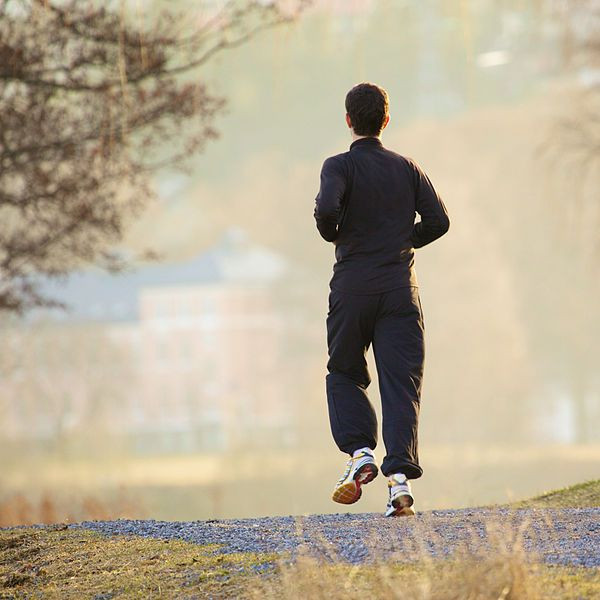Long-Term Unemployment: Exercise Your Way To A Healthier Outcome

There is a strong and well-established link between involuntary job loss and adverse health effects. Negative mental health has been shown to be both a consequence of as well as a risk factor for unemployment. And physical health may be impacted as well; unemployment status, multiple job losses, and short periods without work have been shown to be significant risk factors for acute cardiovascular events.
As underwhelming employment statistics continue to roll in, economists and researchers alike explore the consequences of long-term joblessness.
Economic Effects
As reported in a recent Northeastern University newsletter, Rand Ghayad, a doctoral student in economics, sent out approximately 4,800 fictitious, computer-generated resumes that represented applicants with identical credentials except for unemployment duration and industry experience. Ghayad explained that this tactic served as a proxy for whether a company would even consider hiring particular applicants. He discovered that the applicants who had been out of work for more than six months were almost never contacted for an interview.
"Employers are screening out the long-term unemployed," said Ghayad.
Clearly, long-term unemployment is a most difficult place to be; hence the often heard advice, given to those seeking a job, to volunteer as a way to invigorate a resume. Although the U.S. Department of Labor reported the number of long-term unemployed people (those jobless for 27 weeks or more) declining by 258,000 to 4.4 million in April, those figures are still large enough to concern us all. Too many are still affected by a bleak economy and are forced to consider the most important question: How do I maintain my health in the face of this situation?
Exercise
The routines of a steady job may not always encourage physical activity, but unemployment is often worse. Researchers in Germany recently examined the effects of an activity counseling and exercise referral program on the behavior of long-term unemployed individuals. As unemployment is associated with health risks, they hypothesized that physical activity could produce health benefits that might counterbalance the risks.
In their study, 51 long-term unemployed persons received physical-activity counseling and exercise referral. They were compared to a control group of 21 unemployed and 17 employed persons with no intervention. Physical activity was measured over seven consecutive days prior to, and three months after, counseling. Their findings aligned with their expectations: Participants who received counseling increased their amount of both moderate and total physical activity. The researchers concluded that willing and motivated people benefitted from the structured physical activity counseling and exercise referral.
More importantly, though, the unemployed participants were able to increase their physical activity to a health-promoting level, which would also have an impact on their mental health.
Virtual Companionship
All of us, whether employed or not, experience moments when our family and friends just aren't in sync. No one is immune to the monotony of searching for a job, especially when that process has been going on for an unusually long time. It seems inevitable to end up in a chat room reading through threads written by people experiencing the same dismal job prospects.
Is a little bit of online fellowship helpful or hurtful?
An article in a recent issue of the British Medical Journal explored the effects of online peer-to-peer interactions. Researchers hoped to compile and evaluate evidence on the effects on health and social outcomes of computer-based peer-to-peer communities and electronic self-support groups. The researchers focused on people discussing health-related issues. Although long-term unemployment is not, strictly speaking, a health-related issue, the conclusions they drew possibly hold true for the jobless.
"It has been argued that online relationships are less valuable than offline ones and detract from social involvement with friends," the authors wrote. "Concerns have also been raised over quality, extreme verbal inhibition and aggression, hoaxes and spam, encouragement of suicide, and privacy issues on internet groups. In studies included for this review, no negative effect or harm has been reported."
If exercise will promote health and online chat rooms will do no harm, what else must be considered when dealing with long-term unemployment?
The Happiness Dilemma
Set-point theories of subjective well-being propose that people react to events, whether good or bad, but then they return to their familiar, baseline level of happiness and satisfaction over time.
Researchers at Michigan State University decided to test this idea by examining reaction and adaptation to unemployment in a 15-year longitudinal study. More than 24,000 individuals living in Germany participated. In keeping with set-point theories, individuals reacted strongly to unemployment and then shifted back toward their baseline levels of life satisfaction.
"However, on average, individuals did not completely return to their former levels of satisfaction, even after they became reemployed," the authors wrote. "Furthermore, contrary to expectations from adaptation theories, people who had experienced unemployment in the past did not react any less negatively to a new bout of unemployment than did people who had not been previously unemployed."
The researchers believe their results suggest that although life satisfaction is moderately stable over time, life events can strongly influence long-term levels of happiness and satisfaction. In other words, we are not untouched and unmoved by the adverse events of our life. Commonly, none of us perceive long-term unemployment as an illness. Perhaps seeing it in this light might benefit us all.
Sources:
Dupre ME, George LK, Liu G, Peterson ED. The cumulative effect of unemployment on risks for acute myocardial infarction. Archives of Internal Medicine. 2012.
Lucas RE, Clark AE, Georgellis Y, Diener E. Unemployment alters the set point for life satisfaction. Psychological Science. 2004.
Gabrys L, Michallik L, Thiel C, Vogt L, Banzer W. Effects of a Structured Physical-Activity Counseling and Referral Scheme in Long-term Unemployed Individuals: A Pilot Accelerometer Study. Behavioral Medicine. 2013.
Eysenbach, G. Powell, J, Englesakis, M, Rizo, C, Stern, A. Health related virtual communities and electronic support groups: systematic review of the effects of online peer to peer interactions. British Medical Journal. 2004.
Published by Medicaldaily.com



























